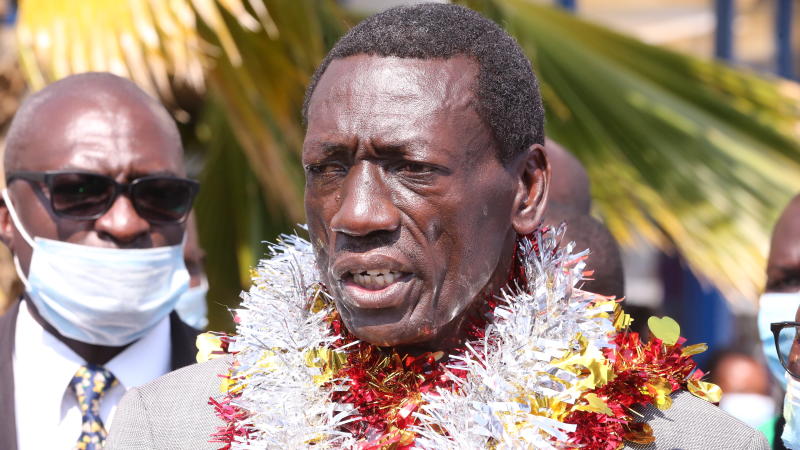
The call was holy and irresistible, or so the young boy thought. But four years was enough to ditch the rosary for the gun, and ultimately the chalk won. This is the extraordinary journey of Knut’s Secretary-General Collins Oyuu, who at one time worked as a tout and is now expected to steer the union into prosperity.
And what a journey it has been! Oyuu changed his mind from becoming a priest at Queen of Apostle seminary after four years of his high school studies and drifted some 150km to Kenya Police Training College in Kiganjo.